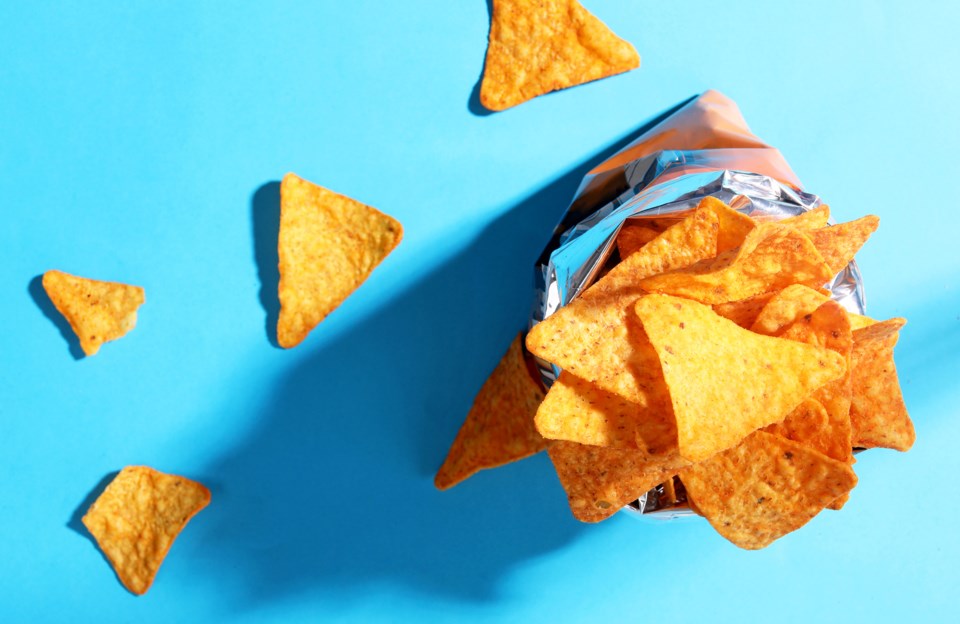Will snack lovers have to go to different stores just to find the chips they love?
Perhaps as a chip manufacturer battles with the nation’s largest grocer over raising prices.
Frito-Lay wants to raise prices to deal with such issues as supply chain delays but Loblaw, which operates Real Canadian Superstore in Metropolis at Metrotown and multiple Burnaby Shoppers Drug Mart stores is pushing back against those price hikes.
And so, Frito-Lay is reportedly not shipping its products, like Doritos chips, to Loblaw stores across Canada, meaning we’ll be seeing some empty shelves.
Frito-Lay spokeswoman Sheri Morgan confirmed there is a "temporary disruption" with one customer.
"Our business has faced unprecedented pressures from rising costs of items including ingredients, packaging and transportation," she said in an email.
"To help offset these pressures on our Canadian operations ... we have made adjustments to our prices that are consistent across the marketplace."
Loblaw spokeswoman Catherine Thomas said the grocer is "laser focused" on minimizing retail price increases.
"When suppliers request higher costs, we do a detailed review to ensure they are appropriate," she said in an email. "This can lead to difficult conversations and, in extreme cases, suppliers don’t ship us products."
The rift between Frito-Lay and Loblaw exposes deepening tensions in Canada's food industry that many experts say could worsen as supply chain challenges and inflation continue.
Some argue that grocery retailers are simply trying to keep sticker prices low for consumers and stop suppliers from using inflation to justify unreasonable price hikes.
Others suggest grocers are using their market strength to bully suppliers and pad their bottom lines.
Inflation is a hot issue right now and some Burnaby residents have been speaking out about how inflation is making the act of buying groceries a depressing experience.
Food prices in Canada are soaring as higher input costs, shipping fees and wages push the food inflation rate to 6.5 per cent — the biggest year-over-year jump in grocery bills in more than a decade.
Statistics Canada said last week that the increase in food prices in January outpaced the overall annual inflation rate of 5.1 per cent.
Snack war. Chip aisle at local @ShopprsDrugMart is getting a makeover amid parent company Loblaw’s fight with Frito-Lay.https://t.co/uTSlKM9NRN pic.twitter.com/EbAEC34RMi
— Jordan Armstrong (@jarmstrongbc) February 22, 2022
Meat, bread and fruit were just some of the food items pushing up the cost of groceries, the agency said.
“I’ve been reading the NOW’s stories about ‘sticker shock’ from going to the grocery store and I can confirm that I definitely had sticker shock looking at outrageous meat prices,” said Terri, a Burnaby shopper who does the grocery buying for her, her husband and their three young children. “We’re a one-income family because I stay home due to the high cost of child care. I’m used to stretching out the food budget but this is ridiculous. I’m having to cut back on some pretty essential items just to get enough food to feed the family.”
Higher food prices reflect a raft of issues, including the rising cost of goods, labour shortages and supply chain disruptions, experts say.
"It's layer upon layer of issues that are compounding to create these skyrocketing prices," said Simon Somogyi, University of Guelph professor and Arrell Chair in the Business of Food.
"The cost of everything across the food supply chain is getting so expensive and that's the same for farms, wholesalers, packers and processors right up to retailers. All these things are coming together on top of other issues like winter storms and shipping delays and the result is higher prices."
Canadians paid 7.4 per cent more for bakery products in January compared with a year ago, an extra 16.5 per cent for margarine and 12.1 per cent more for condiments, spices and vinegars, Statistics Canada said.
- With additional reporting by the Canadian Press



